八年级下>Unit 9 Have you ever been to an amusement park?>Section A>1a-2c
文档属性
| 名称 | 八年级下>Unit 9 Have you ever been to an amusement park?>Section A>1a-2c |
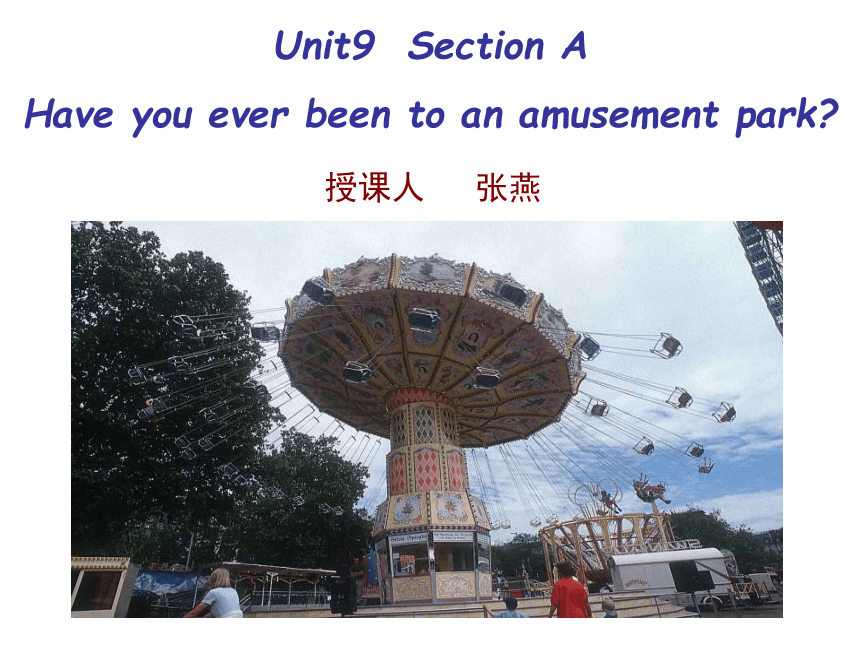
|
|
| 格式 | rar | ||
| 文件大小 | 2.0MB | ||
| 资源类型 | 教案 | ||
| 版本资源 | 人教新目标(Go for it)版 | ||
| 科目 | 英语 | ||
| 更新时间 | 2011-06-01 00:00:00 | ||
图片预览

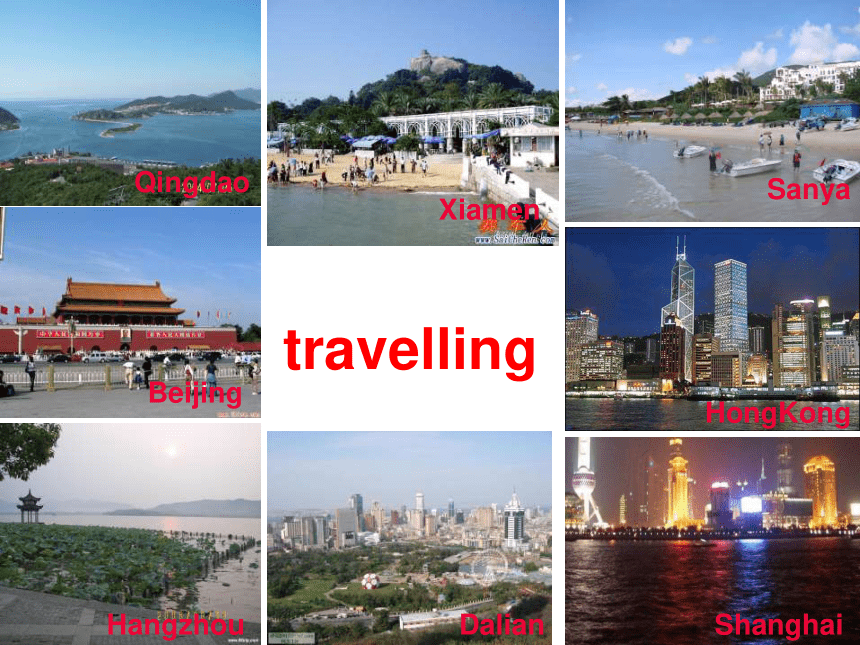
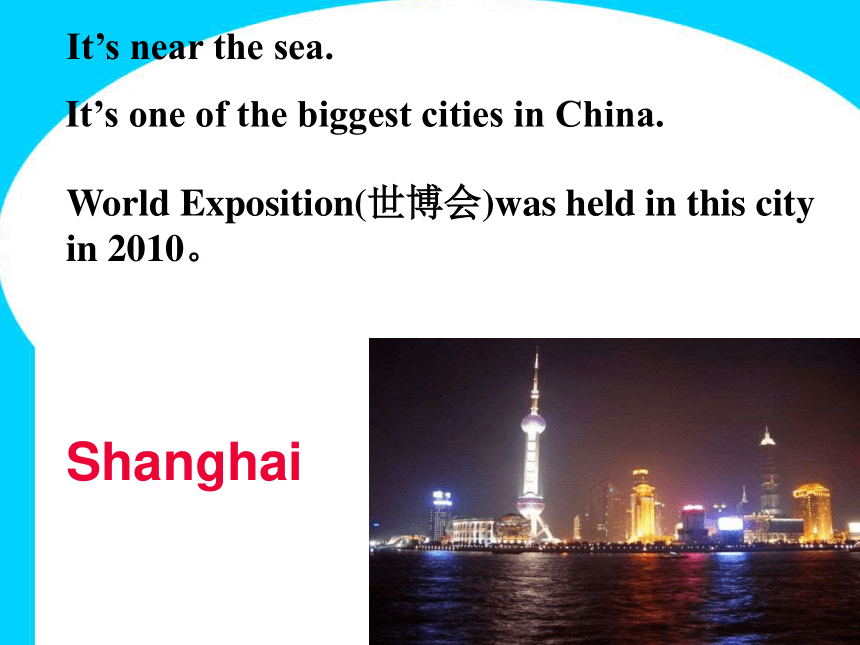
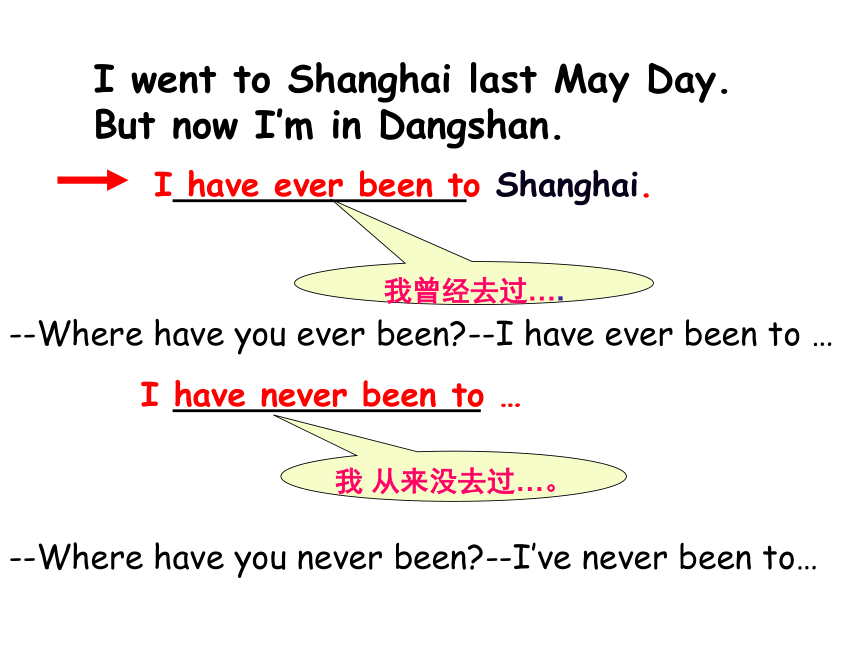
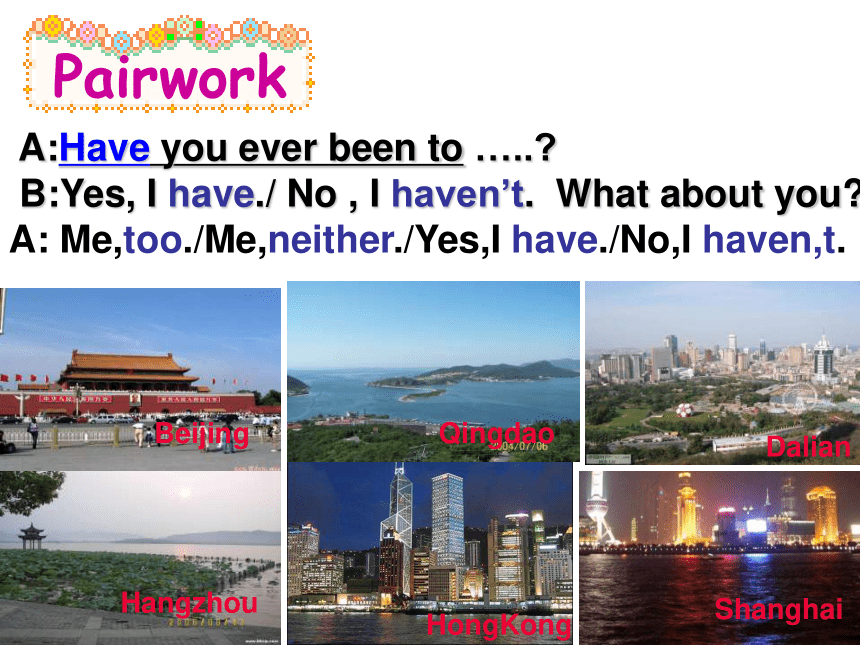
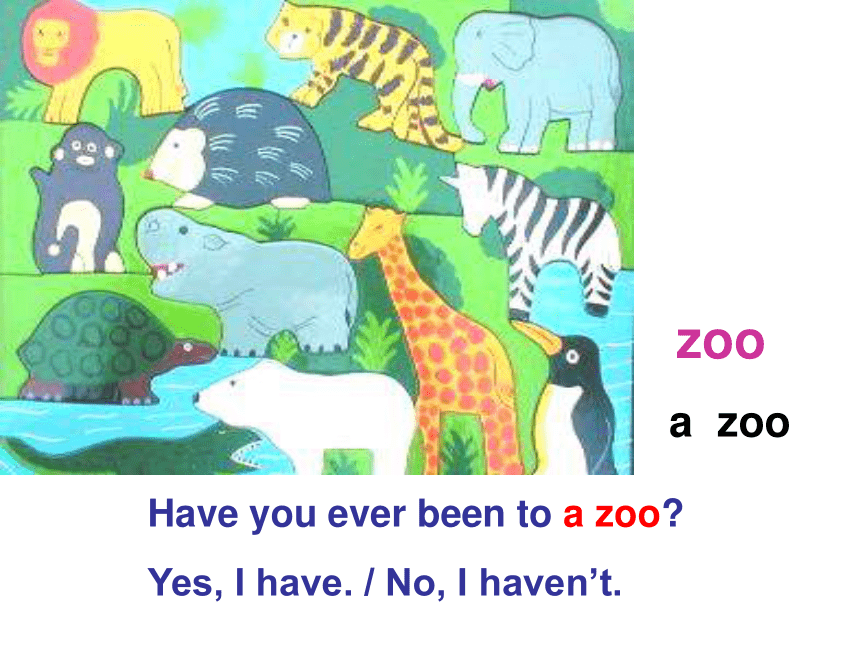
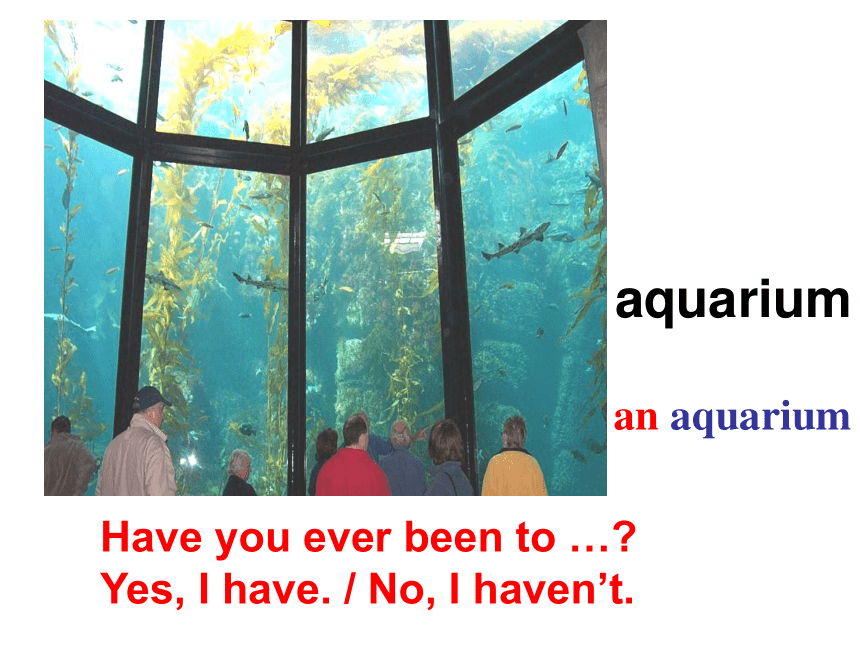
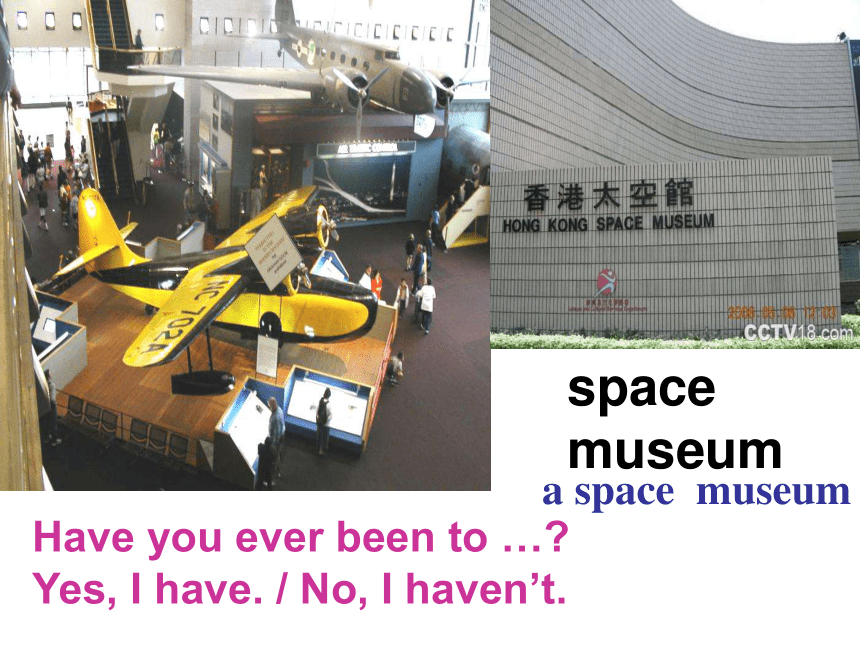
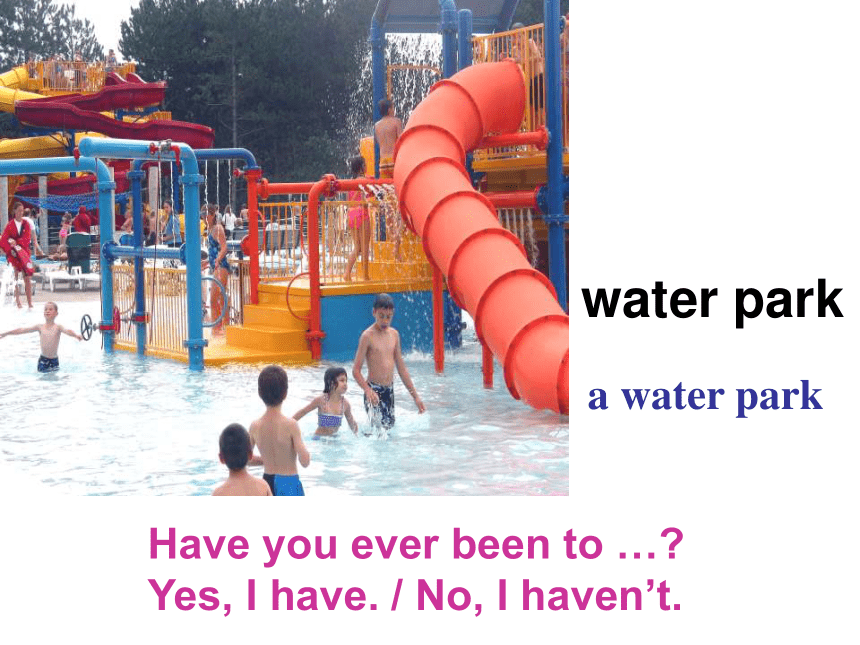
文档简介
(共30张PPT)
Unit9 Section A
Have you ever been to an amusement park
授课人 张燕
Sanya
HongKong
Hangzhou
Shanghai
Qingdao
Dalian
Beijing
travelling
Dalian
Xiamen
It’s near the sea.
It’s one of the biggest cities in China.
Shanghai
World Exposition(世博会)was held in this city in 2010。
I have ever been to Shanghai.
I have never been to …
I went to Shanghai last May Day.
But now I’m in Dangshan.
--Where have you never been --I’ve never been to…
--Where have you ever been --I have ever been to …
我曾经去过….
我 从来没去过…。
A:Have you ever been to ….. B:Yes, I have./ No , I haven’t. What about you A: Me,too./Me,neither./Yes,I have./No,I haven,t.
Pairwork
Beijing
Qingdao
HongKong
Hangzhou
Dalian
Shanghai
zoo
Have you ever been to a zoo
Yes, I have. / No, I haven’t.
a zoo
aquarium
Have you ever been to …
Yes, I have. / No, I haven’t.
an aquarium
space museum
Have you ever been to …
Yes, I have. / No, I haven’t.
a space museum
water park
Have you ever been to …
Yes, I have. / No, I haven’t.
a water park
amusementpark
Have you ever been to …
Yes, I have. / No, I haven’t.
娱乐
an amusement park
a space museum
an amusement park
an aquarium
a water park
Which of these places would you like to visit
I would like to visit….
太空博物馆
游乐场
水族馆
水上公园
1a Which of these places would you like to visit Rank them from 1 to 5.
space museum
amusement park
aquarium
zoo
water park
动物园
n. 娱乐;消遣
zoo
amusement park
aquarium
space museum
water park
Claudia
Sarah
Have you ever been to an amusement park
Yes,I have.I went to Fun Times Amusement Park last year.Have you ever been to a water park
No,I haven’t.
Me neither. Let’s go to Water City tomorrow.
Me neither. 我也没去过。
(1)英语中表示后者与前者情形相同,“也不……”时,常用neither引起的倒装句Neither+助动词/系动词be/情态动词+主语。如:
I'm not tall. Neither is she.
= She's not tall, either.
我个子不高, 她个子也不高。
Explanation
(2)如果表示后者与前者情形相同,“也……”,常用so引起的倒装句,so+助动词/系动词be/情态动词+主语。如:
My friends are happy. So am I.
= I'm happy, too./I'm also happy.
我的朋友高兴, 我也很高兴。
注意:neither “两者都不”,反义词both;“(两者中的)任何一个。
Neither of the books is new.
Neither of the girls likes sports.
neither of the +n(复)+V(单)
Claudia
Sarah
Space
museum
Aquarium
Zoo
Amusement park
Water park
1b Listen. Have these students ever been to these places Check ( ) the boxes.
√
√
√
√
√
√
√
1c PAIRWORK Ask and answer questions about the places in the picture.
A: Have you ever been to an aquarium
A: I have been to an aquarium./
Me neither.
B: No, I haven’t. How about you
2a Look at the map of the town. Listen and circle the places you hear.
2b Listen again and circle T (for true) or F (for false).
Conversation 1 Tina went to the space museum last year. T F John has never been to the space museum. T F They are going to take the subway. T F
Conversation 2 Linda has been to the aquarium. T F Linda went to the zoo three times last year. T F Linda is going to the zoo again next week. T F
Conversation 3 Harvey had a great time at Water World. T F Harvey’s friend has never been to Water World. T F Harvey and his friend are going skating. T F
2c PAIRWORK Look at the map and role play conversations. Talk about where you have been, where you want to go, and how you are going to get there.
A: Have you ever been to an
amusement park
B: Yes, I have.
Have you ever been to an aquarium
Yes, I’ve been to an aquarium.
No, I haven’t.
No, I’ve never been to an aquarium.
3. I’ve never been to a water park.
Me neither. =Neither have I.
你曾去过水族馆么?
我从没去过水上公园。
我也没去过。
2. I have been to the zoo a lot of times.
Me too. = So have I.
我去过动物园许多次。
我也去过许多次。
已学习过的时态
名称 时间 动词形式
一般现在时 经常,反复
一般过去时 过去(与现在无关)
一般将来时 即将,计划
现在进行时
正在进行
过去进行时 过去某一时间,在进行
1.v原形 2. v三单
am / is / are+v-ing
1.will +v原形
2.am / is/ are going to +v原形
3. be+ v-ing
was / were+v-ing
1.v-ed(规则动词)
2.不规则动词
判断下列句子的时态
1.She works in a factory.
2.I was doing my homework at this time yesterday.
3.We are going to have a picnic this Sunday.
4.They held a sports meeting last week.
5.Are you helping your mother .
一般现在时
过去进行时
一般将来时
一般过去时
现在进行时
1.现在完成时表示过去发生或者已经完成的动作对现在所造成的影响,或表示从过去开始,一直持续到现在的动作或状态。
1.I /They /You have been to the Great Wall .
She/He has been to the Great Wall.
2.I /They/You have not / haven't to the Great Wall.
She/He has not / hasn't been to the Great Wall.
3.Have I/they/you been to…
Has she/he been to…
肯定形式:have/has +过去分词
否定形式:have/has + not +过去分词
一般疑问句:have或has放于句首。
现在完成时:表示过去发生或已经完成的某一动作对现在造成的影响或结果,或从过去开始一直延续到现在的动作或保存的状态,强调的是现在的情况,不能和表示过去的时间状语连用(如:in 1990,last Sunday 等)。
现在完成时与一般过去时的区别:
1). I have just had breakfast.
我刚吃过早餐。(结果:现在不饿)
Someone has broken the window.
有人把窗户打破了。(结果:窗户仍破着)
have / has + V过去分词
现在完成时可以用来从过去开始一直延续到现在的动作或保存的状态,常与for, since连用.(通常和延续性动词连用) Mary has been ill for three days. I have lived here since 1998.
现在完成时的标志词:already(肯), yet(否定,疑问), ever,never ,just, before, recently, so far等
for, since(只能和延续性动词连用)
一般过去时:一般过去时只表示过去的动作或状态,和现在不发生关系(即动作或状态在现在已经结束),它可以和表示过去的时间状语连用。
现在完成时句子通常有already, yet, ever, never, just, before, since, for, in the past few months/years等词做时间状语。
时间标志词:yesterday, the day before yesterday, last +时间, in 1976,… ago,
just now…等
--Have you ever been to ___ amusement park
--Yes, I have.
A.a B. an C. the D. /
2. _____ you _____ to a water park
A. Have ; gone B. Have ; been
C. Has; been D. Has; gone
4. He__ been to Shanghai. He __ there last year.
A. have; go B. has; go
C. has; went D. have; went
5. He hasn’t been to Beijing. He __ there next year.
A. goes B. went C. will go D. has been to
3. I don’t like the two coats because ______ of
them fits me.
A. either B. all C. none D. neither
一.移花接木:按要求改写句子
(1)She has been to Nanjing.(改为一般疑问句,并作肯定、否定回答)
(2)He has finished his homework.(改为否定句)
(3)Li Lei hasn’t been to Qingdao. I haven’t been to Qingdao,either.(改为同义句)
Li Lei hasn’t been to Qingdao. _____ _____ I.
二、词组句子翻译
1、太空博物馆 2、娱乐公园 3、水上公园 4、乘地铁 5、去年 6、明年 7、玩得愉快
8、我从没去过水族馆。我也没有。
Homework
Unit9 Section A
Have you ever been to an amusement park
授课人 张燕
Sanya
HongKong
Hangzhou
Shanghai
Qingdao
Dalian
Beijing
travelling
Dalian
Xiamen
It’s near the sea.
It’s one of the biggest cities in China.
Shanghai
World Exposition(世博会)was held in this city in 2010。
I have ever been to Shanghai.
I have never been to …
I went to Shanghai last May Day.
But now I’m in Dangshan.
--Where have you never been --I’ve never been to…
--Where have you ever been --I have ever been to …
我曾经去过….
我 从来没去过…。
A:Have you ever been to ….. B:Yes, I have./ No , I haven’t. What about you A: Me,too./Me,neither./Yes,I have./No,I haven,t.
Pairwork
Beijing
Qingdao
HongKong
Hangzhou
Dalian
Shanghai
zoo
Have you ever been to a zoo
Yes, I have. / No, I haven’t.
a zoo
aquarium
Have you ever been to …
Yes, I have. / No, I haven’t.
an aquarium
space museum
Have you ever been to …
Yes, I have. / No, I haven’t.
a space museum
water park
Have you ever been to …
Yes, I have. / No, I haven’t.
a water park
amusementpark
Have you ever been to …
Yes, I have. / No, I haven’t.
娱乐
an amusement park
a space museum
an amusement park
an aquarium
a water park
Which of these places would you like to visit
I would like to visit….
太空博物馆
游乐场
水族馆
水上公园
1a Which of these places would you like to visit Rank them from 1 to 5.
space museum
amusement park
aquarium
zoo
water park
动物园
n. 娱乐;消遣
zoo
amusement park
aquarium
space museum
water park
Claudia
Sarah
Have you ever been to an amusement park
Yes,I have.I went to Fun Times Amusement Park last year.Have you ever been to a water park
No,I haven’t.
Me neither. Let’s go to Water City tomorrow.
Me neither. 我也没去过。
(1)英语中表示后者与前者情形相同,“也不……”时,常用neither引起的倒装句Neither+助动词/系动词be/情态动词+主语。如:
I'm not tall. Neither is she.
= She's not tall, either.
我个子不高, 她个子也不高。
Explanation
(2)如果表示后者与前者情形相同,“也……”,常用so引起的倒装句,so+助动词/系动词be/情态动词+主语。如:
My friends are happy. So am I.
= I'm happy, too./I'm also happy.
我的朋友高兴, 我也很高兴。
注意:neither “两者都不”,反义词both;“(两者中的)任何一个。
Neither of the books is new.
Neither of the girls likes sports.
neither of the +n(复)+V(单)
Claudia
Sarah
Space
museum
Aquarium
Zoo
Amusement park
Water park
1b Listen. Have these students ever been to these places Check ( ) the boxes.
√
√
√
√
√
√
√
1c PAIRWORK Ask and answer questions about the places in the picture.
A: Have you ever been to an aquarium
A: I have been to an aquarium./
Me neither.
B: No, I haven’t. How about you
2a Look at the map of the town. Listen and circle the places you hear.
2b Listen again and circle T (for true) or F (for false).
Conversation 1 Tina went to the space museum last year. T F John has never been to the space museum. T F They are going to take the subway. T F
Conversation 2 Linda has been to the aquarium. T F Linda went to the zoo three times last year. T F Linda is going to the zoo again next week. T F
Conversation 3 Harvey had a great time at Water World. T F Harvey’s friend has never been to Water World. T F Harvey and his friend are going skating. T F
2c PAIRWORK Look at the map and role play conversations. Talk about where you have been, where you want to go, and how you are going to get there.
A: Have you ever been to an
amusement park
B: Yes, I have.
Have you ever been to an aquarium
Yes, I’ve been to an aquarium.
No, I haven’t.
No, I’ve never been to an aquarium.
3. I’ve never been to a water park.
Me neither. =Neither have I.
你曾去过水族馆么?
我从没去过水上公园。
我也没去过。
2. I have been to the zoo a lot of times.
Me too. = So have I.
我去过动物园许多次。
我也去过许多次。
已学习过的时态
名称 时间 动词形式
一般现在时 经常,反复
一般过去时 过去(与现在无关)
一般将来时 即将,计划
现在进行时
正在进行
过去进行时 过去某一时间,在进行
1.v原形 2. v三单
am / is / are+v-ing
1.will +v原形
2.am / is/ are going to +v原形
3. be+ v-ing
was / were+v-ing
1.v-ed(规则动词)
2.不规则动词
判断下列句子的时态
1.She works in a factory.
2.I was doing my homework at this time yesterday.
3.We are going to have a picnic this Sunday.
4.They held a sports meeting last week.
5.Are you helping your mother .
一般现在时
过去进行时
一般将来时
一般过去时
现在进行时
1.现在完成时表示过去发生或者已经完成的动作对现在所造成的影响,或表示从过去开始,一直持续到现在的动作或状态。
1.I /They /You have been to the Great Wall .
She/He has been to the Great Wall.
2.I /They/You have not / haven't to the Great Wall.
She/He has not / hasn't been to the Great Wall.
3.Have I/they/you been to…
Has she/he been to…
肯定形式:have/has +过去分词
否定形式:have/has + not +过去分词
一般疑问句:have或has放于句首。
现在完成时:表示过去发生或已经完成的某一动作对现在造成的影响或结果,或从过去开始一直延续到现在的动作或保存的状态,强调的是现在的情况,不能和表示过去的时间状语连用(如:in 1990,last Sunday 等)。
现在完成时与一般过去时的区别:
1). I have just had breakfast.
我刚吃过早餐。(结果:现在不饿)
Someone has broken the window.
有人把窗户打破了。(结果:窗户仍破着)
have / has + V过去分词
现在完成时可以用来从过去开始一直延续到现在的动作或保存的状态,常与for, since连用.(通常和延续性动词连用) Mary has been ill for three days. I have lived here since 1998.
现在完成时的标志词:already(肯), yet(否定,疑问), ever,never ,just, before, recently, so far等
for, since(只能和延续性动词连用)
一般过去时:一般过去时只表示过去的动作或状态,和现在不发生关系(即动作或状态在现在已经结束),它可以和表示过去的时间状语连用。
现在完成时句子通常有already, yet, ever, never, just, before, since, for, in the past few months/years等词做时间状语。
时间标志词:yesterday, the day before yesterday, last +时间, in 1976,… ago,
just now…等
--Have you ever been to ___ amusement park
--Yes, I have.
A.a B. an C. the D. /
2. _____ you _____ to a water park
A. Have ; gone B. Have ; been
C. Has; been D. Has; gone
4. He__ been to Shanghai. He __ there last year.
A. have; go B. has; go
C. has; went D. have; went
5. He hasn’t been to Beijing. He __ there next year.
A. goes B. went C. will go D. has been to
3. I don’t like the two coats because ______ of
them fits me.
A. either B. all C. none D. neither
一.移花接木:按要求改写句子
(1)She has been to Nanjing.(改为一般疑问句,并作肯定、否定回答)
(2)He has finished his homework.(改为否定句)
(3)Li Lei hasn’t been to Qingdao. I haven’t been to Qingdao,either.(改为同义句)
Li Lei hasn’t been to Qingdao. _____ _____ I.
二、词组句子翻译
1、太空博物馆 2、娱乐公园 3、水上公园 4、乘地铁 5、去年 6、明年 7、玩得愉快
8、我从没去过水族馆。我也没有。
Homework
同课章节目录
- Unit 1 What's the matter?
- Section A
- Section B
- Unit 2 I'll help to clean up the city parks.
- Section A
- Section B
- Unit 3 Could you please clean your room?
- Section A
- Section B
- Unit 4 Why don't you talk to your parents?
- Section A
- Section B
- Unit 5 What were you doing when the rainstorm came
- Section A
- Section B
- Review of Units 1-5
- Unit 6 An old man tried to move the mountains.
- Section A
- Section B
- Unit 7 What's the highest mountain in the world?
- Section A
- Section B
- Unit 8 Have you read Treasure Island yet?
- Section A
- Section B
- Unit 9 Have you ever been to a museum?
- Section A
- Section B
- Unit 10 I've had this bike for three years.
- Section A
- Section B
